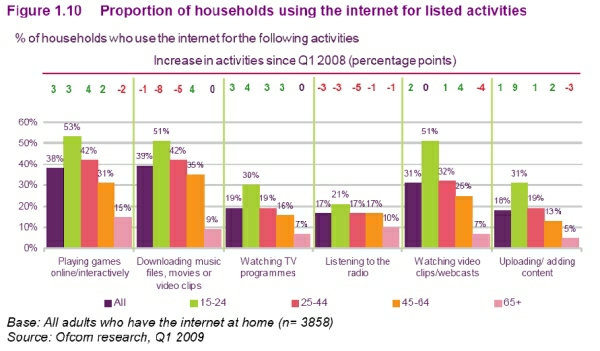The UK Government has stirred up the industry today with a press release by the Department of Business, Enterprise And Regulatory Reform (BERR) that intimates it’s intention to regulate ISPs into assisting the music industry to combat illegal downloading.
BERR is saying that last year’s consultation with stakeholders (ISPs and music industry) showed that there is no consensus on how to address the problem and the suggestion is that it sees regulation as being necessary. The whole subject matter, however, is riddled with complexity.
In 2008 the music industry, under a new representative body known as UK Music, run by former pop star Feargal Sharkey, began discussions with what are known as the “Big Six” ISPs. These are the large branded ISPs that actually represent the majority of the consumer broadband customers in the UK. These discussions were held in private and the rest of the industry has not been party to what was actually being said. My understanding is that the discussions centred purely around enforcement and have not gone particularly well.
The problems centre around being able to prove who is doing the downloading and what is being downloaded – most ISPs can’t tell and have no interest – this surely is a privacy issue. Then there are the costs of policing and finally the fact that none of the ISPs want to lose customers.
At the ISP Conference in London last November I sat on a panel with Feargal Sharkey to discuss this whole issue. At that time we arranged to meet again in the New Year so that the other , smaller, UK ISPs, represented by the ISP Association of which I am a council member could participate in the discussion. That meeting is scheduled for 9th February. So the position taken by BERR is in my view somewhat premature as discussions between stakeholders do not yet appear to me to have finished.
The nature of talks now is centred around licensing and revenue models. There have been some high profile announcements recently where some big consumer ISPs have severed their contractual relationships with music content providers. This is being done because the existing business models do not work. For example music streaming is licensed on a per stream basis. As the number of streams grow ISPs have to increase their capacity to measure and account for them and the cost of doing so soon outweighs the income derived from selling access to the music.
So they have to look for an alternative. The strong rumour is that a big UK ISP has already negotiated a deal whereby it can sell unlimited access to music for a fixed monthly fee per subscriber (word on the street is that this is BT though there has been no offical acknowledgement of this fact).
The meeting on the 9th February is likely to centre around how other ISPs can adopt the same model to everyone’s mutual benefit. From the ISP industry perspective it makes more sense to make music easy to access legally than to drag everyone into complex legal processes which will only benefit lawyers in the long run.
BERR is also now saying that this subject area is also now going to be taken under the wing of the Digital Britain Review, the interim report for which is due out at the end of this month. I am not convinced that this interim report will show much progress. The likelihood is that another consultation will happen in the summer with a target date for legislation in the autumn.
This timetable, I believe, does not really provide enough time for sensible consideration of the legislation and if I were the Government would not want to be getting into an unpopular debate with industry in the run up to the election. There is a feeling on the ISP streets that the government is now looking to come up with some good news stories to take them through 2009 and into a notional spring General Election in 2010.
Time will tell, and soon enough. I will continue to report and comment on this subject. This post is a little longer than usual but there is a lot to talk about.
